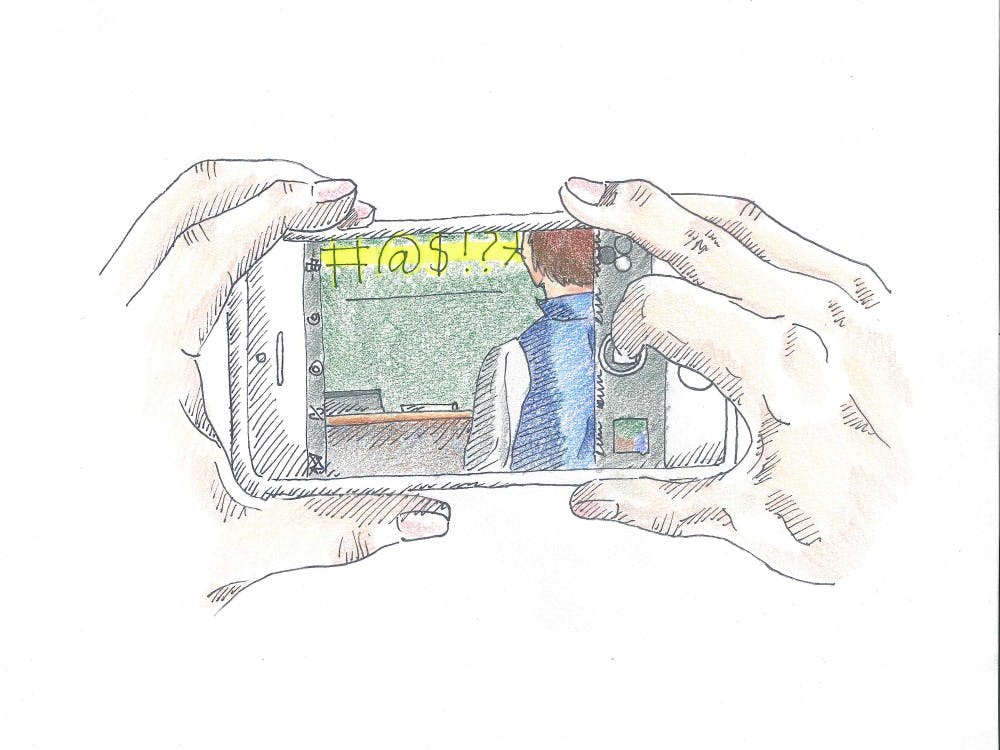In a classroom in Kokomo High School, a laptop screen displays the n-word, but with one letter missing and a blank line in its place, as in a game of hangman. The student to whom the computer belongs shows the image to a paraprofessional who laughs and a classmate who does not.
The classmate knows she isn’t supposed to record other people in class without their permission, but she also knows that what her peer and the staff member are doing is wrong, so she decides to take a video as proof.
After posting that video Nov. 29, three people were punished: the paraprofessional, the student with the laptop and the student who recorded the video.
If the Editorial Board were to grade Kokomo High School for its decision, the school would receive a 50 percent for one-and-a-half out of three questions correct.
The staff member, who has since been informed of pending termination, was justly fired, but suspension is not an effective punishment and should not have been given to either of the two students involved.
Although the student who displayed the slur should have been punished, a publication from the Duke University Center for Child and Family Policy suggests that removal from school rather than teaching behavioral modification will interrupt education and “hasten school dropout.”
The student who recorded the video, however, should not have been punished at all.
The Editorial Board finds this decision to be a wrongful application of a well-intended rule. While it makes sense that nonconsensual recording should be prohibited in most instances as a violation of privacy, we need to give students room to use tools that can help them solve problems.
If the student who recorded the staff member and classmate had not been able to present the video as proof that the incident occurred, the situation would have depended on hearsay for its resolution, and we can all imagine how a young female student’s word might stack up against that of a male authority figure, the staff member in this situation.
When our students look to their leaders, they already witness too many positions of power occupied by individuals whose prejudices should have made them unworthy of the privileged status they possess.
Especially when it comes to our educators, these positions should be filled by men and women who inspire trust and acceptance among their students even if such qualities are scarce elsewhere.
The message Kokomo High School sent in suspending a student who sought to address racism in her classroom is that her educational experience is less important than allegiance to the bureaucratic status quo.
Instead of learning about algebra or literature, the student will learn that her school gives equal punishment to students who promote racism and students who try to prevent it.
Students should be allowed to use, within reason, any tools necessary to increase the quality and security of their educational environment.
In anticipation of those who might wish to radicalize our argument, let us be clear in saying that we are not suggesting that students record their classrooms at all times in order to catch and expose racism. We simply believe that, when a student feels threatened, he or she should have the right to take action.
When your teacher and classmate are laughing about a word associated with the systematic oppression of an entire race, you should be allowed to record and report that incident without being taken out of the environment you sought to improve.




